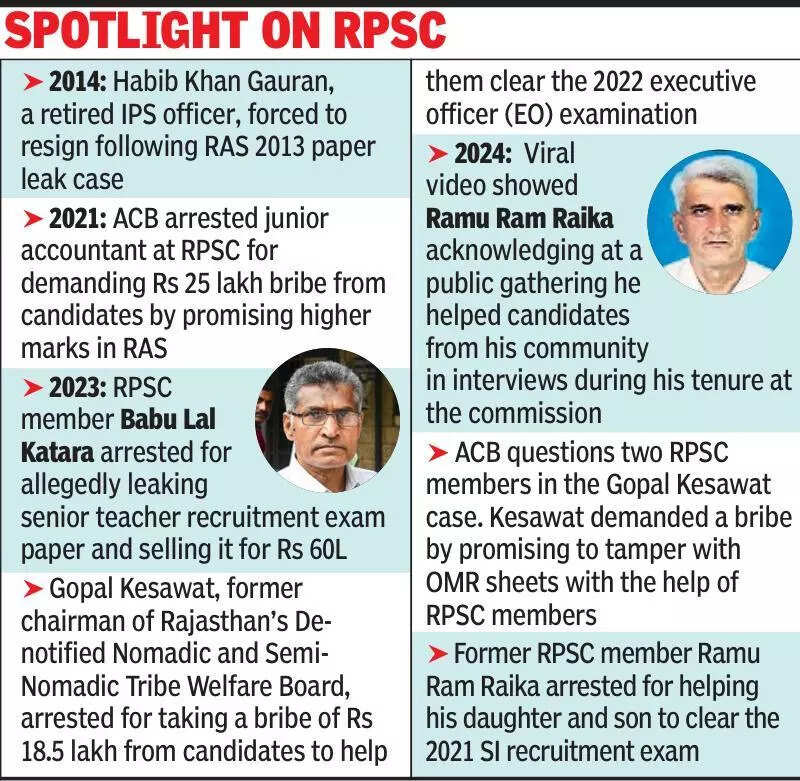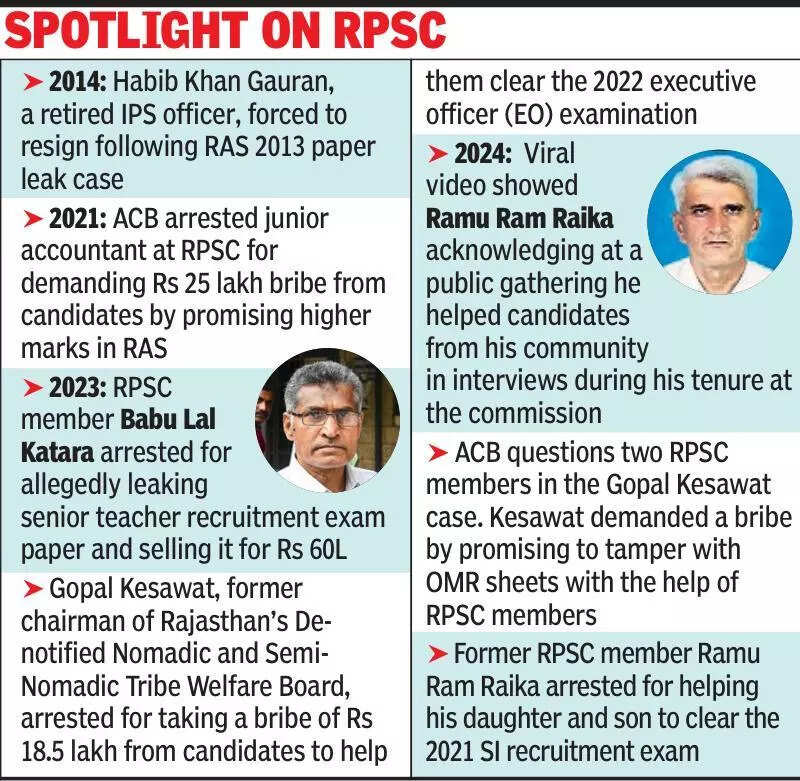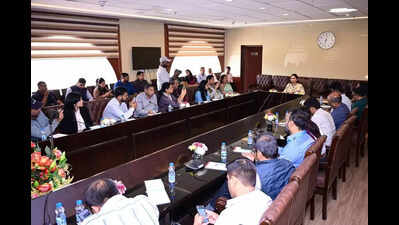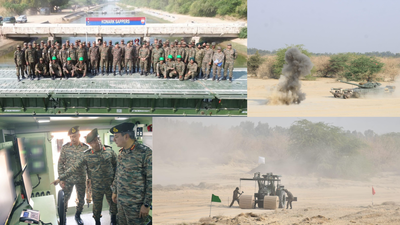Jaipur: The Rajasthan High Court delivered a scathing critique of the Rajasthan Public Service Commission (RPSC), while annulling the controversial 2021 Sub-Inspector (SI) exam Thursday. The court described the commission as corroded by corruption and compromised to its core, following revelations of systematic malfeasance. Justice Sameer Jain’s judgment was influenced by the arrests of RPSC members Ramuram Raika and Babu Lal Katara by Special Operations Group (SOG) for allegedly orchestrating SI question paper leaks prior to these reaching the printing press. This scandal has severely undermined public confidence in the integrity of the RPSC recruitment processes. Notably, both Raika and Katara’s appointments to RPSC were also marred by controversy. Raika, in particular, faced scrutiny for his public admissions of favouritism towards candidates from his community, raising further questions about the commission’s fairness. RPSC’s troubles are not isolated incidents; they span several years and multiple examinations. The scandal, however, is not a one-off. For years, RPSC has been at the centre of controversies over compromised exams. From the Rajasthan Administrative Service (RAS) exam in 2013 to the recruitment of revenue officers/executive officers (RO/EO) in 2022, the junior engineer test of 2020, and the 2022 senior teacher exam. A Special Investigation Team (SIT) report submitted to the state govt in Sept 2024 painted a grim picture of the commission’s practices. It indicated a pattern of circumventing established protocols through opaque decision-making. For instance, while exams were originally slated to occur at govt institutions with strict oversight, private schools were instead permitted to serve as examination centers. Furthermore, logistics were handled using private vehicles rather than state-run transport, and entry regulations were relaxed, allowing candidates to arrive just 10 minutes before the exam—an opportunity that may have facilitated cheating. The decision to conduct the 2021 SI exam over three days, instead of a single session, also raised red flags. The last-minute addition of districts such as Alwar, Pali, Bhilwara and Rajsamand as exam centers further complicated the transparency of the process, creating multiple avenues for malpractice.
RPSC’s Troubled Past: From RAS 2013 to SI 2021 , a series of exam disasters | Jaipur News





